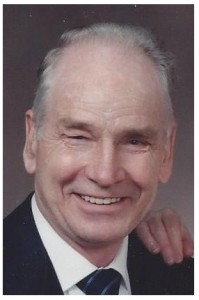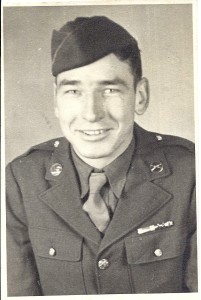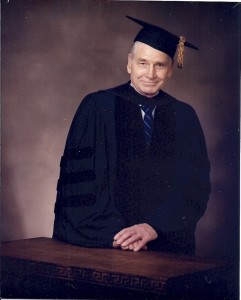The Measure of a Man
 This week will mark what would have been my dad’s 95th birthday. He’s been gone four and a half years now, but I still feel his influence in my world view and the values I live by.
This week will mark what would have been my dad’s 95th birthday. He’s been gone four and a half years now, but I still feel his influence in my world view and the values I live by.
Daddy was an amazing man. Tall, good-looking, brilliant, and a bit of a nut. He delighted in making people smile with his foolishness, and he did not hesitate to speak up for what he believed in. The only person he made fun of was himself—usually to gain a laugh from others.
He taught us not to lie, and to take responsibility for our actions. He taught us to apologize when we were wrong, and he taught us the value of empathizing with others around us—including especially those who were different from us. He had friends and colleagues around the world who knew of his work and respected him for it.
He sought counsel from those with experience and expertise, and welcomed input to solve problems. He was an economics professor by trade, but his most valuable lessons for the students he taught were more about how to find and build the life and career they were best suited for. His “experimental economics class” was the first to fill up at the university where he chaired the economics department for 30 years, and was once named Economics Teacher of the Year for his innovative ideas and teaching methods.
 He loved his country, and enlisted in the U.S. Army during World War II. An Office Boy for General Omar Bradley, he was one of few Private First Class soldiers to have his own airplane and pilot to fly messages across the English Channel. One of the jobs he had during the war was running through buildings in London putting out the incendiary bombs that the Germans would drop to light up where to send in the bigger bombs.
He loved his country, and enlisted in the U.S. Army during World War II. An Office Boy for General Omar Bradley, he was one of few Private First Class soldiers to have his own airplane and pilot to fly messages across the English Channel. One of the jobs he had during the war was running through buildings in London putting out the incendiary bombs that the Germans would drop to light up where to send in the bigger bombs.
He valued science and research as a way to understand how the universe worked, and loved to study science books, looking for scientific principles that could be generalized to explain other things. When we moved him and Mom into the assisted living/memory care center after Mom’s broken hip and his stroke meant they could no longer live at home, the books on his table by his favorite reading chair included books on quantum physics, with words underlined and circled to note particular interest for him. His personal library in his office had books ranging from hard science to philosophy to religion—and yes, an occasional economics text as well.
More than one person told us after he died that he had changed their lives—for the better. I suspect there were others, that he helped many people quietly, without fanfare.
 And he believed in standing up for principles. The last ten years before he retired at age 70 were spent fighting a legal battle. He and four other department members were whistle blowers, initially at the school president, and ultimately the school’s Board of Trustees. He wasn’t fighting for a monetary settlement, but just to right some wrongs. My mom was right beside him the whole way. Friends, co-workers, and even some family members couldn’t understand what he was fighting for or why he was doing it, if not for money. Ultimately he won his case and received a formal apology from the university and a special emeritus status. Only then did he retire.
And he believed in standing up for principles. The last ten years before he retired at age 70 were spent fighting a legal battle. He and four other department members were whistle blowers, initially at the school president, and ultimately the school’s Board of Trustees. He wasn’t fighting for a monetary settlement, but just to right some wrongs. My mom was right beside him the whole way. Friends, co-workers, and even some family members couldn’t understand what he was fighting for or why he was doing it, if not for money. Ultimately he won his case and received a formal apology from the university and a special emeritus status. Only then did he retire.
He was a consummate gentleman and was still standing up whenever a woman entered the room, right up to the night before his death. A devout Christian, devoted husband, father, and grandfather, he led by example every day of his life.
This man was my “yardstick” against which I compare others. I only wish there were more men—and women—like him.
The measure of a man is in the lives he’s touched.
—Ernie Banks
© Melissa Clark Vickers 2017
Back to home page